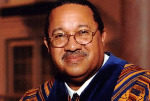I distinctly remember the moment that I first wrestled with the problem of abortion. Like many young men of my generation, I had always assumed that if abortion was legal it must be okay. Since Roe v. Wade and Doe v. Bolton—which made it illegal to restrict abortion in any stage of pregnancy were decided when I was just five years old, I had never really considered the fact that the legality of abortion was relatively new.
I grew up in a small country town and was not aware of anyone I knew ever terminating a pregnancy. On occasion women and girls had children out of wedlock, of course, and this I understood to be regrettable. Yet, whether these were children of neighbors, friends or relatives, they were welcomed, doted on, cared for and seemed to turn out as well as those of us who had been born well after our parents’ weddings. It would have never occurred to me growing up that children conceived out of wedlock to young mothers would have terrible lives and thus might be better off dead.
No, my passive approval of abortion came from a lack of critically examining the issue. I respected women; women, I was told, needed to have the right to decide what to do with their bodies. That seemed good enough for me. So, it was only in college, when I struck up a conversation with some pro-life students that I was forced to reconsider my views. When I mentioned the legality of abortion, a student politely countered that slavery, too, had been legal but that did not make it right. This point forced me to consider: what if abortion was not okay? Had I been duped? Could there be a connection between slavery of the eighteenth century and abortion in the nineteenth century?
The more I learned of the history of the abortion rights movement in the
This disparity had worried people like Planned Parenthood founder Margaret Sanger, who considered blacks “unfit” and was concerned about our numbers becoming overwhelming. In 1939, she launched The Negro Project, an initiative to use black leaders (particularly black ministers) to promote the placement of birth control clinics in black neighborhoods. Sanger’s primary goal was to reduce the number of babies born to black women.
On December 10, 1939, Sanger wrote of the Negro Project to Clarence Gamble: millionaire heir to Proctor and Gamble and philanthropist in the birth control movement” The minister’s work is also important and he should be trained, perhaps by the Federation as to our ideals and the goal that we hope to reach. We do not want word to go out that we want to exterminate the Negro population, and the minister is the man who can straighten out that idea if it ever occurs to any of their more rebellious members.”
In fact, the Negro Project sought to reproduce nationwide what Sanger had begun when she established one of her first clinics in
While few today would overtly espouse such beliefs, the overwhelming majority of abortion clinics still stand in minority neighborhoods. A study published by the Life Issues Institute revealed that of162 Planned Parenthood facilities, 62.5% were located in black neighborhoods.
Nowhere is Sanger’s legacy more apparent today than in the disproportionate attention abortion advocates continue to pay to minority urban areas. NARAL Pro-Choice New York, a chapter of the nation’s leading abortion-rights organization, is touting their Urban Initiative, which was launched in the fall of 2008 by the National Institute of Reproductive Health.
Regrettably, one of the goals of this strategic, nationally coordinated initiative is to work with urban leaders, mostly elected officials, to scrutinize and increasingly regulate pregnancy centers in urban areas. Since 2008, NARAL has passed anti-pregnancy center legislation in the following urban areas:
Pregnancy centers, also called pregnancy help centers, provide free pregnancy testing, ultrasounds, pre-natal nutrition classes, counseling, and referrals to social service agencies for women facing unplanned pregnancies. Nine out of ten pregnant women who visit a Care Net pregnancy center will decide to carry their pregnancy to term.* If they feel unable to care for the child themselves, they are connected with adoption services. For those who choose to abort, such centers provide post-abortive recovery programs for those who desire it.
There are two very strange things about the urban initiative NARAL is touting with such pride. First, as of this writing, an astonishing 62% of black pregnancies in
Second, as NARAL tries to increase restrictions on pregnancy help centers, they are simultaneously lobbying for relaxed regulation on abortion clinics Such proposals include allowing non-physicians to perform surgical abortions and making it impossible to sue an abortion provider for malpractice, even if the mother dies during the procedure.
If they are truly concerned with women getting the best healthcare, why wouldn’t they want to hold abortion providers accountable for malpractice and ensure that surgical procedures where being performed by licensed physicians? Clearly, we are witnessing The Negro Project 2.0.
In theory, almost everyone agrees that abortion is not a good thing. Some abortion advocates will even state the desire to reduce the number of abortions. We are often told that the only way to reduce abortion is to increase the availability of contraception; in the same way we were told that the availability of abortion was the only way to reduce out-of -wedlock births. Yet, we have more birth control today than we did forty years ago, and we have more abortions and more out-of-wedlock births than we did then.
The sad truth is that there are powerful organizations at work in
In fact there is right now in this country a waiting list of families ready to adopt infants, and specifically black infants. There is no reason that any woman should fear that a baby she is unprepared to care for will not end up in a loving family that has been waiting, hoping and praying for her child.
It is my prayer that our women will find the help and support they need through caring pregnancy centers and communities that love and support them. We must also stand with and support the growing number of pastors, bishops, doctors, lawyers, coaches and educators who are committed to turning the tide of high abortion rates in the inner cities. Unlike Sanger’s Negro leaders, these men and women are helping to create a culture of life in which each child is welcomed regardless of race or circumstance.
First published: 2014-09-13 12:09:00
 Dean Nelson is onthe Board of Directors for the Virginia Christian Alliance and the Executive Director for the Network of Politically Active Christians (NPAC) and an ordained minister with Wellington Boone Ministries.
Dean Nelson is onthe Board of Directors for the Virginia Christian Alliance and the Executive Director for the Network of Politically Active Christians (NPAC) and an ordained minister with Wellington Boone Ministries.
==============




